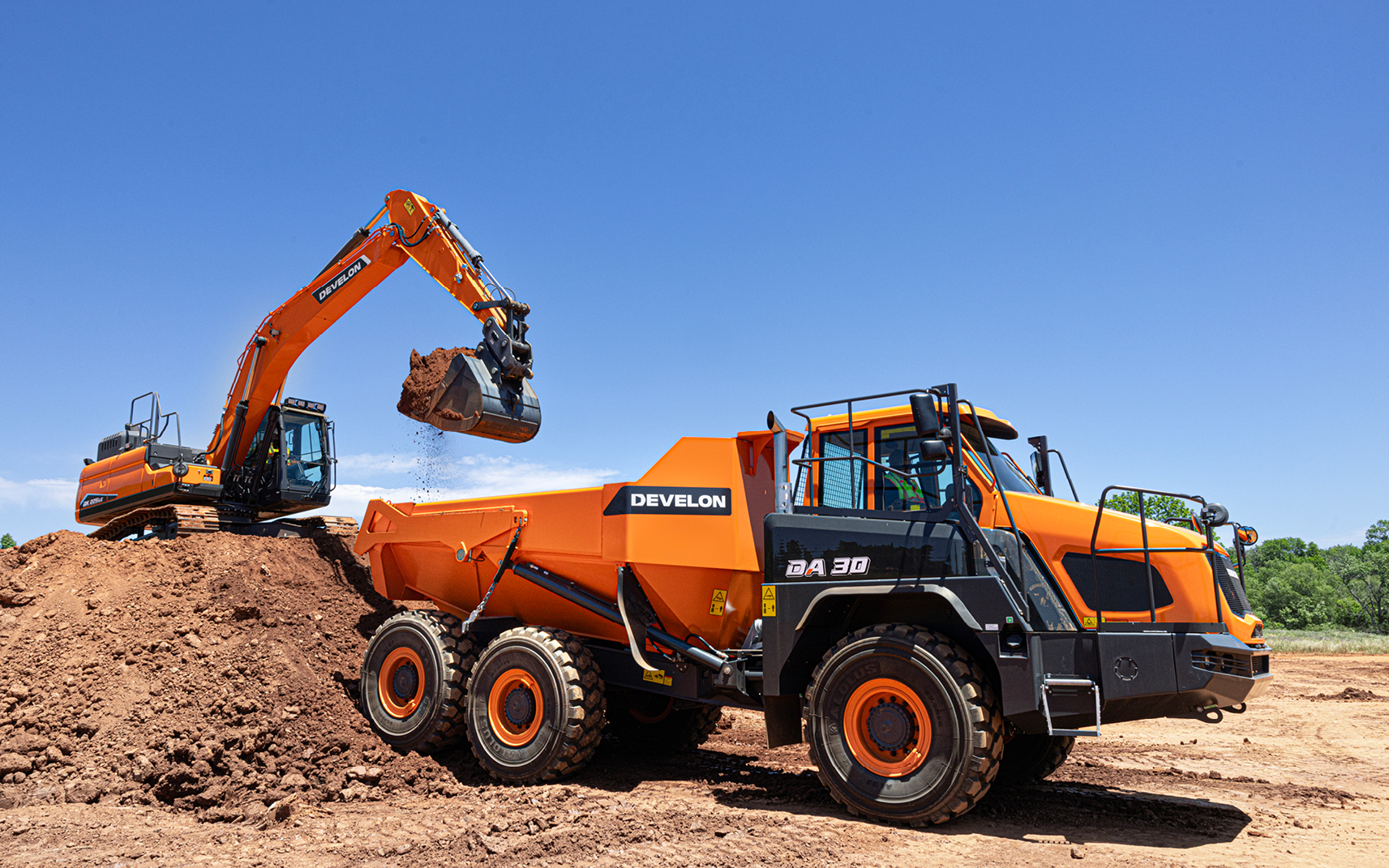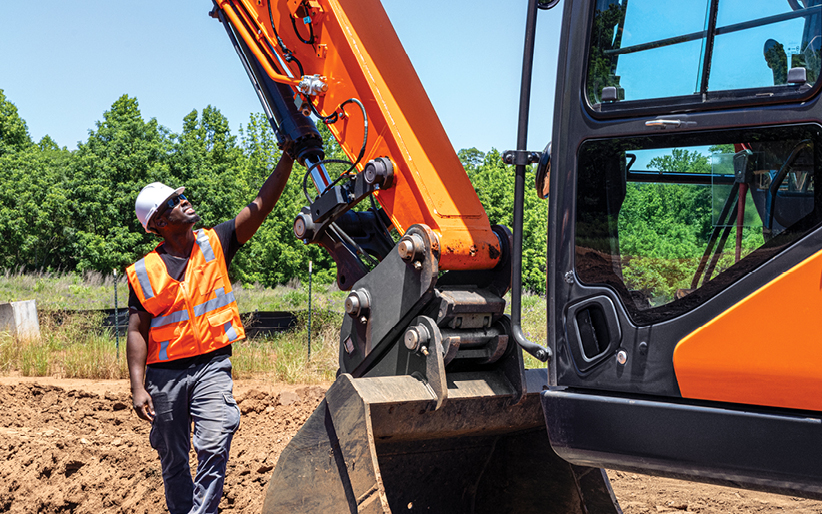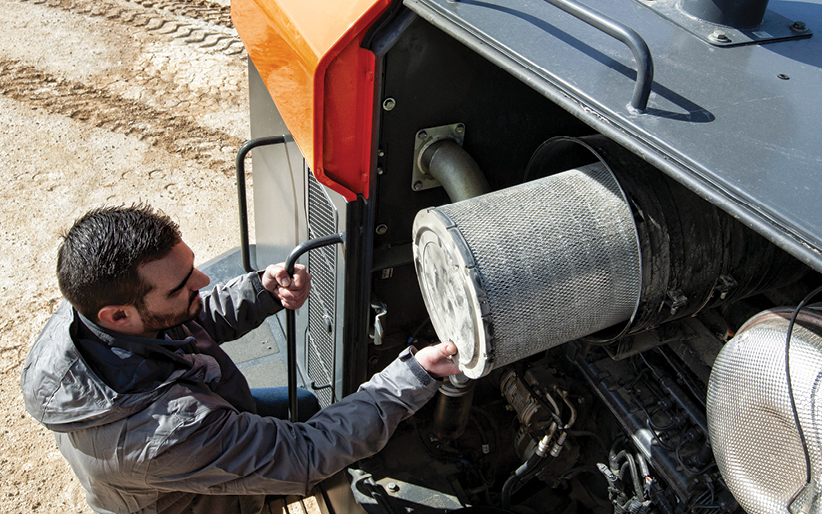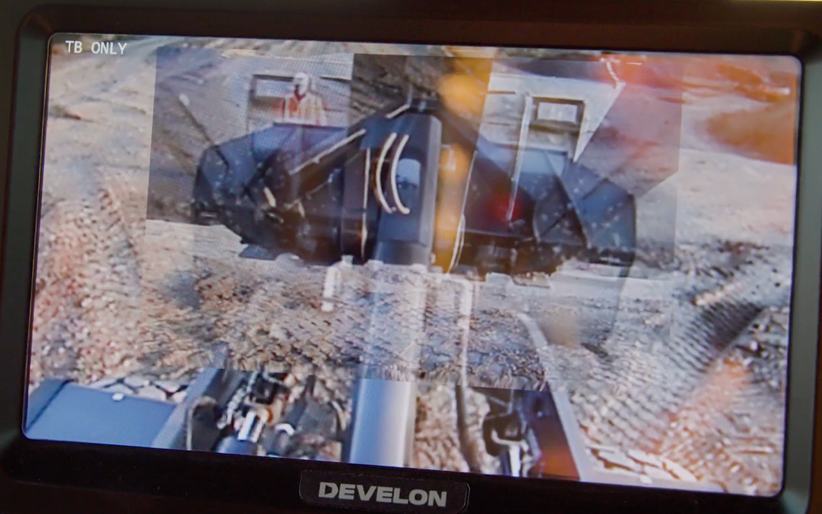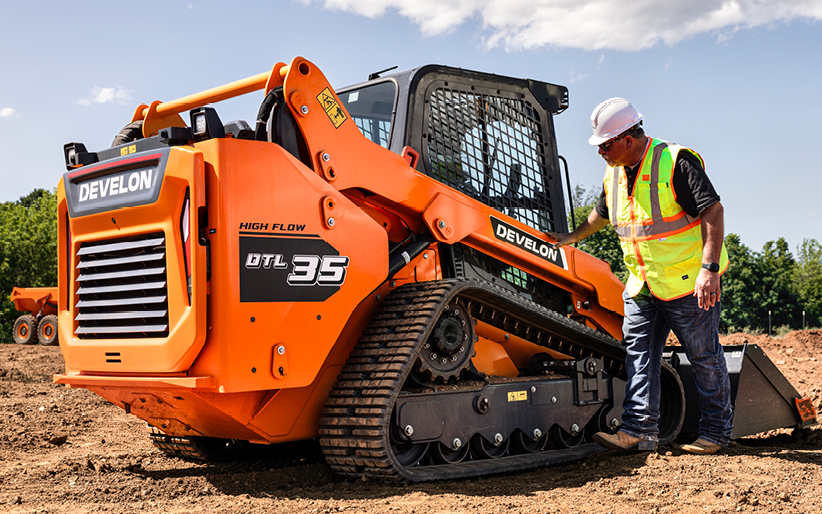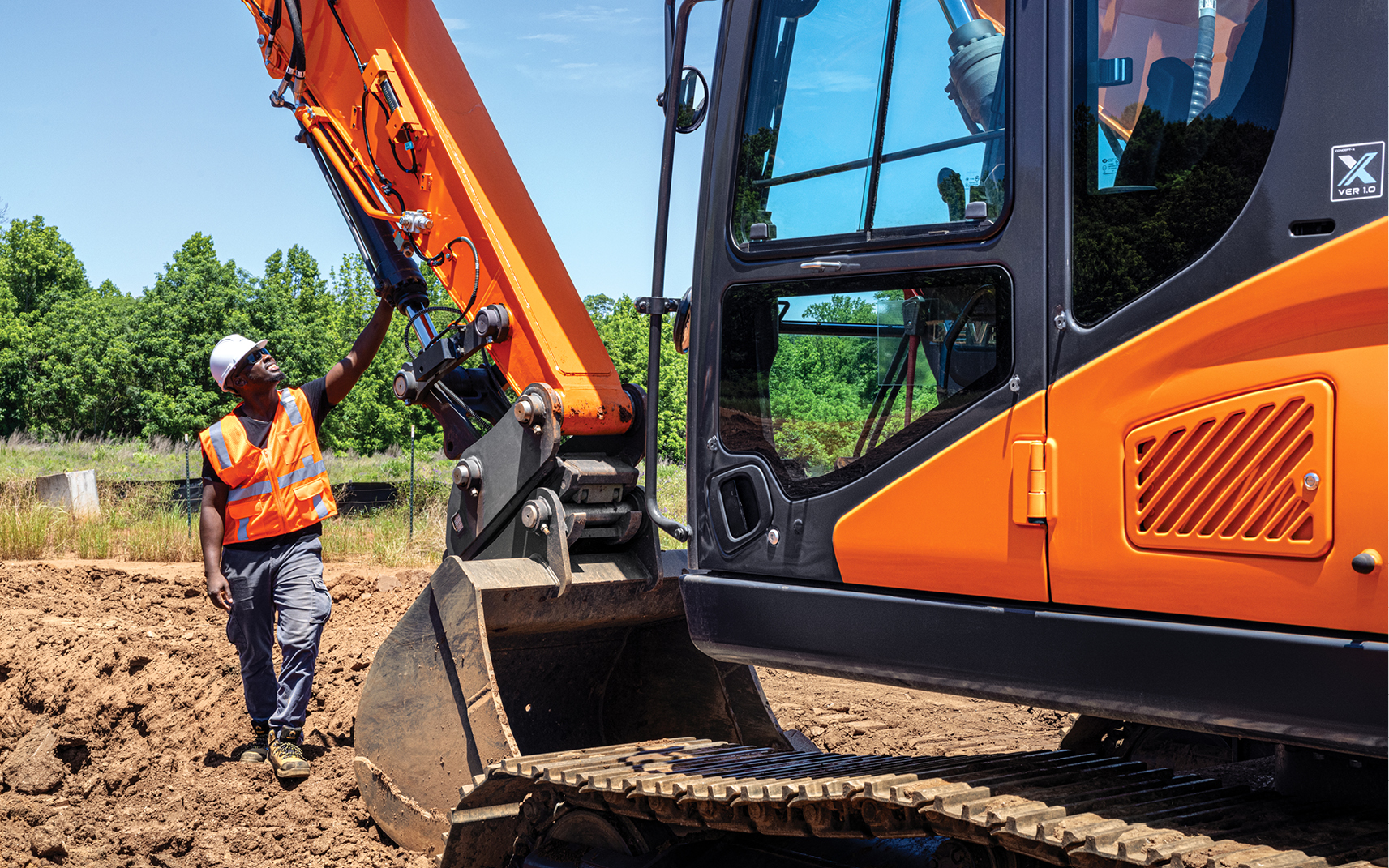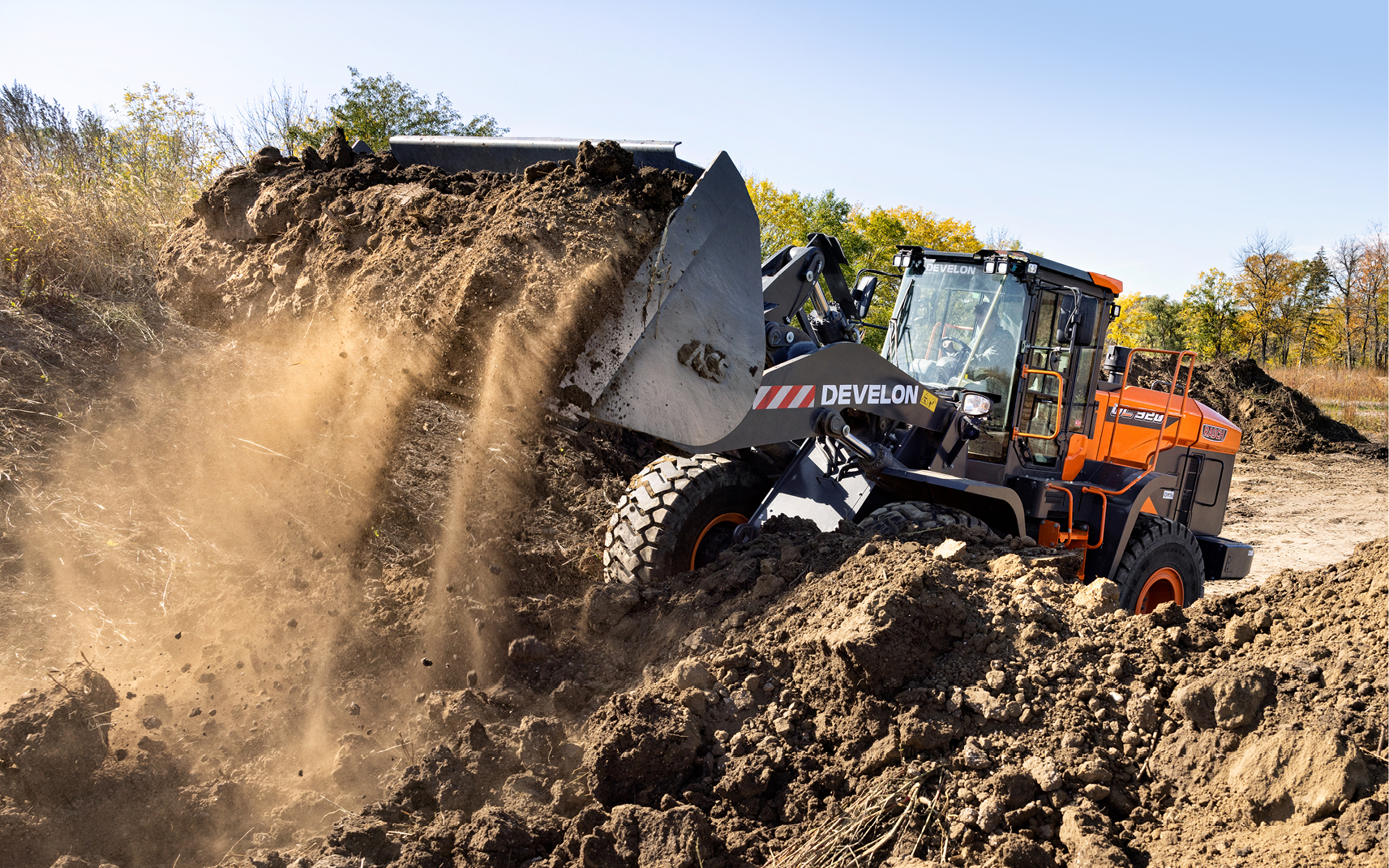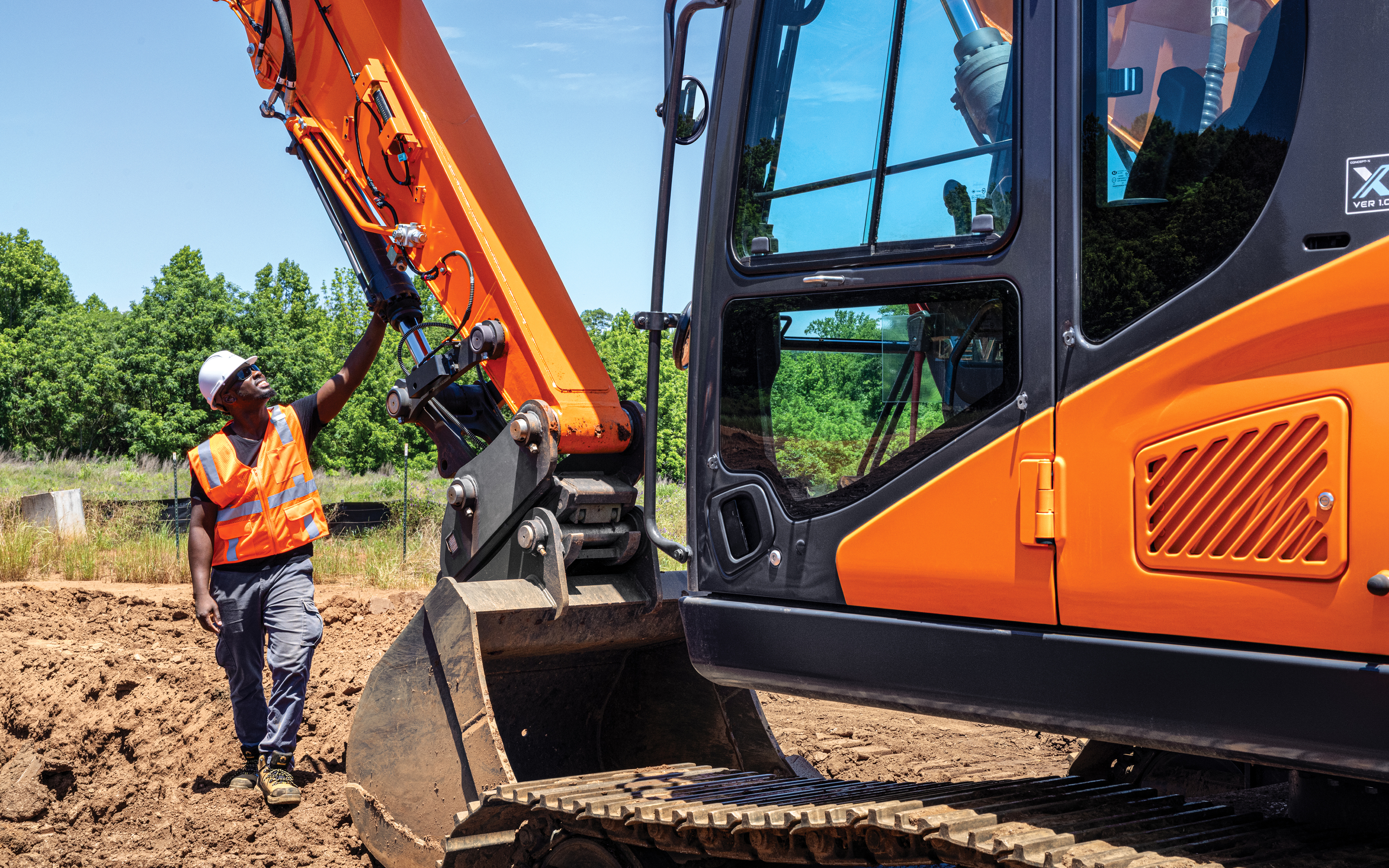Did you know that the true cost of owning a piece of heavy construction equipment isn’t just the purchase price? It’s about what you get back when you sell it.
Your machines are more than just tools — they are capital assets that will eventually be sold into the secondary market. Smart purchasing decisions aim to minimize depreciation and maximize value retention by focusing on features that drive strong aftermarket demand. Ignoring heavy equipment resale value can cost your company a significant amount of money.
The goal of any smart equipment purchase should be to achieve a lower total cost of ownership, also known as lifecycle cost. A high resale value is the most critical factor in achieving this.
A higher resale value provides you with greater flexibility for equipment trades, upgrades or liquidation. Read more about how you can ensure that your equipment maintains its value and offers a strong return when it’s time to move on to the next machine.
Why Resale Value Matters When Buying Equipment
When purchasing construction equipment, it’s important to keep the end in mind. In other words, the eventual resale value of your machine.
The resale value is critical because it reflects the long-term strength of a contractor’s investment, as these machines are actual capital assets.
A higher resale value means lower overall ownership costs, and a machine with a strong resale value typically positions a contractor with a lower total cost of ownership.
The resale value is often initially overlooked but is a significant factor in the overall total cost of ownership, which includes the following:
- Purchase price
- Financing
- Insurance
- Fuel
- Maintenance
- Downtime
The top factors that protect equipment value include:
- Brand reputation
- Aftermarket service
- Parts and service availability
- OEM support
- Maintenance history and service records
- Usage hours
- Equipment condition
- Technology and upgrades like grade control
Aftermarket support affects resale value tremendously because the confidence that a machine was serviced properly with genuine parts by a reputable service department adds unseen value to the life and resale value of the machine.
A higher resale value gives contractors better flexibility when it’s time to trade, upgrade or liquidate the machine. The majority of machines are traded in rather than privately resold, with a typical trade cycle being about three to four years.
Top Signs of Strong Equipment Resale Value
Strong dealer networks can positively impact resale prices because they can support customers throughout the entire lifecycle, minimizing downtime and providing essential parts support.
Some contractors ask me, “How many hours are too many for used construction equipment?” I generally respond by explaining that high-hour benchmarks vary by specific model and brand, but the industry generally considers anything over 9,000 hours for an excavator and 10,000 to 11,000 hours for a wheel loader or dozer to be high hours.
On the other hand, lower operating hours don’t always mean better resale value, especially if a machine was operated in a very corrosive or abrasive environment, such as a poultry farm, quarry or fertilizer plant. This can significantly reduce its worth.
Additionally, operator behavior influences the machine’s life. Aggressive operation or poor warm-up and cool-down habits can cause excessive wear and reduce the machine’s resale value. Good operators perform preventive maintenance to protect components like hydraulics and undercarriages.
Speaking of maintenance, it’s important to keep records of routine maintenance, such as oil and filter changes for the machine’s engine and hydraulic system. And keep any documentation of major component replacements like engines or transmissions.
If you’re missing service records, it may hurt you when it comes time to trade in or sell your machine. Without them, the buyer can’t verify whether the machine was cared for or if routine maintenance was consistently performed on the recommended manufacturer service intervals, such as every 500 hours, as directed in the Operation and Maintenance Manual.
Whether you keep paper records or digital maintenance logs, the most important thing is simply having some kind of record somewhere. What’s really great is that telematics data can also indicate that a machine was serviced properly.
It’s common for most buyers to request service records and perform a physical inspection. For machines like excavators and dozers with undercarriages, buyers will likely measure track wear, sprockets and component thicknesses using specialty tools to assess remaining life. Most OEMs offer checklists for various machine types to guide inspections and questions.
Physical signs that can lower construction equipment value include:
- Contaminated fluids (e.g., engine oil, hydraulic fluid, coolant)
- Excessive undercarriage wear
- Structural cracks or repair welds on booms or arms (excavators)
- Dented or broken panels
Even excessive cosmetic issues like missing buttons, broken screens, torn seats or non-operational seat belts in the cab can indicate a lack of care. This can negatively affect a buyer’s perception of the machine’s overall integrity.
Other Factors That Influence Heavy Equipment Value
Outdated technology can hurt resale value. Conversely, modern features available for construction equipment directly boost resale value because they translate to real savings and efficiency for the next owner.
Buyers will pay more for features that boost efficiency, reduce wear and tear, save fuel and lower future operating costs.
For example, machines with modern technologies like grade control typically command a higher resale value. Grade control can reduce the number of passes needed, saving fuel and time.
Jeff Lounsbury of Lounsbury Excavating in Michigan confirms this point. His company uses 3D grade control on its dozers. He says the technology allows operators to work more efficiently and reduce the number of passes on each job by positioning the blade exactly where it needs to go.
“When you’re done, you’re done … you’re not going back,” Lounsbury says. “The 3D grade control system takes any guesswork out of the old, labor-intensive method of staking.”
If you think beyond the machine and focus on attachments, upgraded attachments can make machines more valuable.
Adding technology features like the Transparent Bucket for a wheel loader can increase resale values because they boost safety, lower the overall operating cost and provide peace of mind for the owner.
Another consideration when evaluating resale value is emission regulations. New machines are Tier 4 emissions compliant, which can be a requirement for certain government-related projects or working in major urban areas. This can make them more desirable and valuable to a larger pool of buyers. On the other hand, older equipment can be attractive to some buyers who want to avoid the complexity and higher initial costs of new Tier 4 technology.
How Neglect Can Erode Resale Value
Aggressive operation or the previously mentioned poor warm-up or cool-down habits by the operator are common mistakes that reduce construction equipment resale value.
Poor maintenance negatively affects resale prices because it means the machine was not serviced properly or the maintenance intervals (like the routine 500-hour service) were stretched to 700 or 750 hours, for instance.
Better-cared-for machines with higher hours sometimes outweigh low-hour machines that haven't been properly cared for.
Signs of neglect are normally easily visible and serve as red flags. Always perform a thorough inspection before purchasing construction equipment.
Neglecting a machine and ignoring routine maintenance has an immediate and direct negative influence on the machine’s life. Misuse causes excessive wear which in turn reduces the resale value.
Successful equipment ownership starts long before you decide to sell. Focus on four pillars of value retention: Choose a reliable brand, prioritize consistent maintenance, leverage modern technology and avoid careless operating habits. By focusing on the four pillars of value retention, you are not only protecting your investment but also purchasing the peace of mind that comes with a high-quality, supported asset.
Aftermarket support has a tremendous effect on resale value because the confidence that a machine was serviced properly with genuine parts by a reputable service department adds unseen value to the life and resale value of the machine.Richie Snyder, Remarketing & Certified Warranty Manager

By Richie Snyder, Remarketing & Certified Warranty Manager
Richie is the Remarketing & Certified Warranty Manager at DEVELON. He has over 20 years of experience in finance, dealer development and construction equipment marketing.

